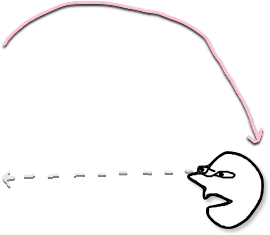I’m not asking about ads in general, but it might be part of the same behavior. I mean the trend of showing media/art like Finding Nemo and people immediately going  with the message and buying endangered fish.
with the message and buying endangered fish.
Is this commodity fetishization, and if so, what are things an artist or creator can do to curb that? Is this something that is considered the responsibility of the creator?
Can anybody suggest readings or authors that shed light on this problem or possible solutions?


This is an extremely optimistic view on my part, but I think it’s important to remember that some of this is people very seriously being trained to be that way by advertisement and consumer culture and so on, which should make it unsurprising when someone who is raised in a world covered in ads responds to many other things as though they are ads.
But I feel like it also has to do with the hollow, hopeless nature of many people’s lives. Do you really have a hope of being financially secure? No? Well, you can still take out a loan to buy a muscle car if you get to the dealership before your credit score gets any lower. Are you valued as a human, or just for the work you put out and the money you make? Better buy a bag you can barely afford, it’s a good way to make a good impression on people.
Do you have any hope of making a better world? Can you actually sustain yourself with the pay from work that builds toward a better future for humanity, or just to make some shitty executives money? Well, may as well have some treats to fill the void.
I hate dwelling on anti-consumerism, it’s usually a really snobbish, but to me the bulk of it is basically the same as religion, which is that people are suffering and need to sooth it, and this is just what happens. If you’re going to be politically involved, it’s good to disabuse yourself of these things, but we can’t just tell everyone to do that and, on a systemic level outside of a communist party, the best way to alleviate poisoning from opiates is to make people’s lives substantively better so they aren’t being hurt as much and therefore don’t cling so much to opiates.
Edit: Tangentially, you might be interested in “Society of the Spectacle,” a book whose title is also misinterpreted based on modern connotations. The core idea is that we live in a society of representations, of ethos by style and association, and therefore try to self-actualize by basically getting accessories, like getting whatever brand of cig to be more manly. Importantly, the goal isn’t simply to look more manly (or whatever the trait is), but that by engaging in these rituals the person actually is more manly in their own mind. You might say that they are creating an image not just to convince others, but to convince themselves.
There’s a lot more to the book and it’s really interesting, but that’s the titular part as I understand it.
iirc mcdonalds tried not running ads somewhere and it tanked business. those people probably ate at competitors they saw an ad for but what if we had no ads, like best korea?
It would be hard to pull off. In the old AES countries they had no ads but people were still crazy to get their hands on Levi’s jeans and Marlboro cigarettes.